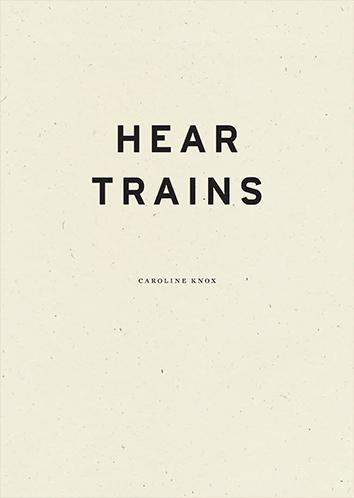Cold blob
Make way, please, for the
cold blob; not blog, it’s
blob. Who is responsible
for this phenomenon: ‘The cold
blob may be a wild card’;
‘It is a large anomalous area’;
‘It is foreboding’ [sic]; who is
the culprit? First identified,
if that’s the right word, as low
salinity in rising oceans, the
cold blob is a colder surface
depth in the Atlantic called
AMOC! This stands for
Atlantic Meridional
Overturning Circulation.
‘Amok’ is much more like it.
Do you know what tongue
‘amok’ is from? It’s Malay,
on the other side of the
globe. A disarranged self
runs amok, and is a wild
card, like the cold blob!
I may have read (some of)
this in the Globe (also called
the Glob). In mild ode mode,
the poem proceeds toward
a theme: causation, with
Physics and Chemistry
for Poets. A headline –
‘The Water in Your Glass
Might Be Older Than the Sun.’
The theory is, a cloud of ice
molecules predated and
then survived the sun.
Transparent, or semi-
transparent: water, glass,
and also stone, as here.
An ignorant woman said
to a geologist, What a
lovely fossil! He said, Oh
It’s a dendrite. She said, No,
a fossil, see the leafy
branches. He: Long ago,
the dendrite formed when
dirty water seeped
into the cooling, clear
liquid quartz. She: A fossil.
The kindly geologist said
nothing to this mind run
amok. I heard their words.
And, as xenon glows
from an electric field,
clarity is accountability:
the cold blob is a bold
gob, the result of global
warming on this erose
biome we call home.
A completely rotted shed
doorless and dark banker’s gray with mold and/or mildew all over it;
it leaned against the air. Our host said, after we had eaten too much
Thanksgiving dinner, that he had been thinking of a bonfire
for this shed, and perhaps tonight was the time?
Since there had been rain recently, it would be safe.
There were the host’s and hostess’ family, cousins, grownups and children,
and a lot of people whom I have no idea who were, plus dogs.
The shed had been in the newspaper because decrepit.
Couldn’t some of it be saved? Our host ignited the fire with old engine oil,
and then the flames took off and up – they climbed
a ziggurat, seeming to enjoy it, a ziggurat
supported by a colonnade, bases and capitals, then pylons
reaching to flaming minarets, to campaniles. All frangible,
fungible, all close to being air already, ready, leaning on air.
Embers glow because the matter is hot enough to emit incandescent light.
I bet there were thirty of us sitting in beach chairs and lying on tarps and blankets,
and we didn’t talk at all, we didn’t laugh, and we certainly didn’t sing.
We gazed into the practical and changeable flames and embers, and these reflected
back on us.

These poems are taken from Caroline Knox’s collection Hear Trains, published by Wave Books.
Photograph © Hadley Paul Garland







